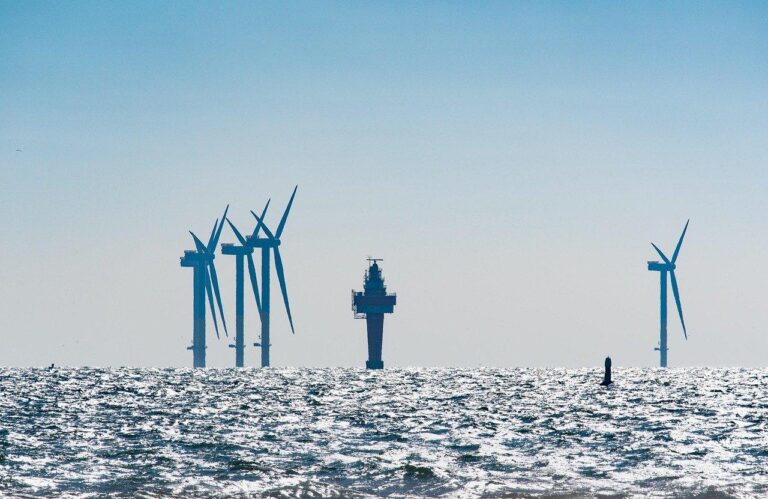France has announced significant revisions to its offshore wind power purchase agreements (PPAs) in a strategic move to address the challenges posed by negative electricity price periods. As the nation accelerates its transition to renewable energy, these updates aim to enhance the financial stability and attractiveness of offshore wind projects amid fluctuating market conditions. The changes, detailed by industry stakeholders and policymakers, are expected to play a crucial role in securing France’s ambitious offshore wind capacity targets while mitigating risks linked to price volatility.
France Updates Offshore Wind Power Purchase Agreements Addressing Challenges of Negative Price Periods
In a strategic move to enhance the financial viability of offshore wind projects, French authorities have introduced significant revisions to Power Purchase Agreements (PPAs) to mitigate the impact of negative price periods in the electricity market. These negative price intervals-when electricity generation exceeds demand-have posed a persistent challenge, undermining revenue streams for renewable energy producers. The updated PPA framework now incorporates adaptive pricing mechanisms that better reflect market fluctuations, ensuring more stable returns for developers and investors. This approach is expected to foster greater confidence in future offshore wind investments, aligning with France’s broader renewable energy goals.
Key updates in the revised PPAs include:
- Introduction of floor price guarantees during negative pricing events
- Dynamic revenue adjustment clauses linked to prevailing market conditions
- Enhanced flexibility in contract duration and volume commitments
| Feature | Previous PPA Model | Revised PPA Model |
|---|---|---|
| Revenue Stability | Limited protection during negative pricing | Floor price guarantees introduced |
| Contract Flexibility | Rigid volume commitments | Adaptable volume and duration |
| Market Responsiveness | Fixed pricing | Dynamic adjustment mechanisms |
Detailed Analysis of Revised Contract Terms and Market Implications for Renewable Energy Producers
The latest adjustments to France’s offshore wind Power Purchase Agreements (PPAs) introduce key modifications designed to mitigate risks associated with periods of negative electricity pricing. Producers will now benefit from a more dynamic pricing mechanism, which includes a floor price ensuring a minimum revenue threshold even during extended market downturns. This shift aims to stabilize cash flow and encourage sustained investment amidst the increasing volatility of European power markets, caused primarily by the growing penetration of intermittent renewable sources and fluctuating demand patterns.
- Introduction of a non-negative price floor: Safeguards producer income during negative price spikes.
- Flexible contract duration clauses: Enables adjustments based on market developments and technological advancements.
- Enhanced penalty and compensation frameworks: Balances risks between grid operators and producers.
The broader market implications suggest a recalibration of risk models across the renewable energy sector. Industry analysts point out that these revisions could prompt other European nations to reconsider similar contract structures, possibly harmonizing risk mitigation strategies continent-wide. Moreover, the changes are expected to influence bank financing conditions positively, as lenders gain increased assurance regarding asset cash flow stability under adverse market conditions.
| Contract Feature | Previous Terms | Revised Terms | Implication |
|---|---|---|---|
| Price Floor | None | Set at €0/MWh | Revenue Protection |
| Contract Length | 20 years fixed | 20 years with review options | Market Flexibility |
| Penalty Clauses | Limited scope | Expanded mutual compensation | Risk Sharing |
Recommendations for Stakeholders to Navigate Volatile Pricing in the French Offshore Wind Sector
To effectively manage the unpredictable swings in pricing that have recently marked the French offshore wind landscape, stakeholders must adopt a multifaceted strategy. Developers and investors are advised to diversify risk through flexible contract structures that can accommodate price fluctuations without compromising project viability. Incorporating indexed elements into Power Purchase Agreements (PPAs) can provide a buffer against prolonged negative pricing periods, safeguarding revenue streams. Meanwhile, regulatory bodies should prioritize transparent communication and streamline mechanisms for price adjustments to maintain market confidence.
Furthermore, collaboration between public and private sectors is essential to foster innovation in grid management and storage solutions. Embracing emerging technologies like battery energy storage systems (BESS) and demand response programs can mitigate the impact of volatility. Below is a simple framework illustrating key focus areas for stakeholders:
| Stakeholder | Recommended Actions |
|---|---|
| Developers/Investors | Flexible PPAs, Indexed Pricing, Portfolio Diversification |
| Regulators | Transparent Price Adjustment Mechanisms, Clear Communication |
| Grid Operators | Integration of Storage, Demand Management Programs |
| Technology Providers | Innovative Storage Solutions, Smart Grid Technologies |
- Leverage dynamic hedging tools to protect portfolios against sudden price dips.
- Invest in advanced forecasting models for anticipating and responding to market trends.
- Engage in policy dialogues to shape supportive frameworks that reflect market realities.
Final Thoughts
As France moves to revise its offshore wind power purchase agreements in response to the challenges posed by negative price periods, the adjustments signal a crucial step toward stabilizing the country’s burgeoning renewable energy market. By addressing price volatility, these measures aim to secure long-term investments and ensure the continued growth of offshore wind capacity in French waters. Stakeholders across the energy sector will be closely monitoring the implementation and impact of these changes as France strives to meet its ambitious clean energy targets.




